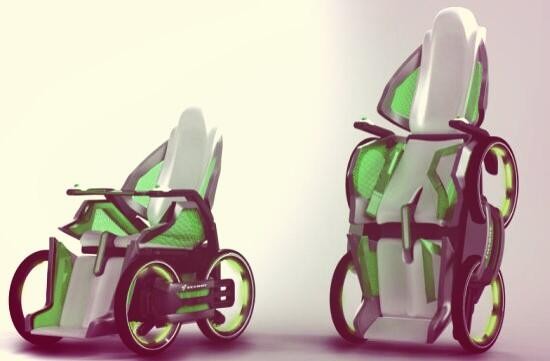Toyota is teaming up with American inventor Dean Kamen to bring back the next generation of the stair-climbing motorized wheelchair that basically gave patients the ability to stand upright. iBot's sky-high $25,000 price tag of the original device caused it to be taken off the retail market in 2009. The Japanese automaker and Segway inventor's DEKA have unveiled an image of a prototype that shows what the robotic rolling chair would look like.
The deal between the two companies gives Toyota the legal rights to license DEKA's balancing technology. It could be used for many purposes besides rehab therapy. They include other health care devices and personal transportation, according to Engadget.
The futuristic wheelchair was first introduced in 2001. Kamen's invention included features such as climbing stairs, boosting seated users to eye-height, and traveling at a walking pace in the standing mode.
Last weekend the auto giant announced that it was teaming up with Kamen's company DEKA. The goal of them joining forces is to provide "mobility solutions" for the disabled community.
The image of iBot 2.0 shows the same basic design as the original robotic chair. However, the next version will be slimmer and include 15 years of new tech.
In a promo video Kamen states that many people enjoy the freedom and flexibility iBot brings them. He shared in the YouTube-hosted video that the companies hope to bring the high-tech wheelchairs to more people around the world.
Toyota recently invested $1 billion in a new research institute that will design products such as robotic helpers. Toyota could add DEKA technology to such healthcare devices.
The auto company announced last year that it will set up a research lab in Silicon Valley as part of its new division called Toyota Research Institute (TRI). It will be headed by former Defense Advanced Research Projects Agency (DARPA) manager Dr. Gill Pratt.
TRI's first focus will be artificial intelligence for smart carts and robots, according to IEEE Spectrum. It hopes to build robots that make life easier for people and especially senior citizens.
Pratt explained that TRI will develop hardware to help people get around and move objects inside their homes.



























